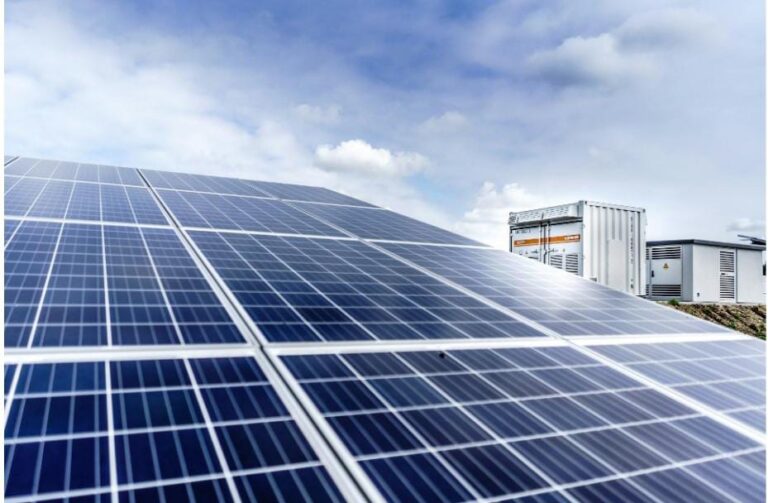As the UK moves towards a more sustainable future, businesses are increasingly looking for ways to reduce operational costs while also minimizing their environmental impact. Solar photovoltaic (PV) systems have emerged as a viable solution, enabling companies to harness renewable energy and significantly cut down on energy expenses. This article explores the various ways solar PV systems can reduce operational costs for UK companies, the benefits they offer, and how they align with broader sustainability goals.
1. Understanding Solar PV Systems
Solar PV Systems for Businesses in the UK convert sunlight into electricity using photovoltaic cells. These systems can be installed on rooftops, ground mounts, or integrated into building designs. In the UK, the average solar PV installation can significantly offset energy bills, especially in a market that is gradually phasing out fossil fuel reliance.
Key Components of Solar PV Systems
- Solar Panels: Convert sunlight into direct current (DC) electricity.
- Inverters: Convert DC electricity into alternating current (AC), which is used by most businesses.
- Mounting Systems: Secure the solar panels in place, whether on rooftops or the ground.
- Battery Storage: Optional, but allows businesses to store excess energy for use during non-sunny periods.
2. Reducing Energy Costs
One of the primary reasons UK businesses invest in solar PV systems is the potential to drastically reduce energy costs. By generating their own electricity, companies can significantly lower their reliance on grid electricity, which can be subject to fluctuating prices. In Edmonton, Alberta, companies like Edmonton Solar Power have demonstrated the significant cost savings and environmental benefits that can be achieved with solar PV systems, serving as a model for UK businesses.
How Solar PV Systems Cut Energy Bills
- Self-Consumption: Businesses can use the electricity generated during the day, reducing the amount they need to purchase from energy suppliers.
- Net Metering: In some cases, companies can sell excess energy back to the grid, providing an additional revenue stream.
- Fixed Energy Costs: By investing in solar PV, companies can hedge against rising energy prices, securing predictable energy costs over time.
3. Government Incentives and Support
The UK government offers various incentives and support mechanisms for businesses that invest in solar PV systems. These can significantly enhance the financial viability of such projects.
Key Incentives
- Feed-in Tariff (FiT): Although this scheme has closed for new applicants, it provided a guaranteed payment for energy generated and fed back to the grid.
- Renewable Heat Incentive (RHI): Available for certain renewable technologies, including solar thermal systems.
- Capital Allowances: Businesses can claim tax relief on their investment in solar PV systems, effectively reducing the upfront costs.
- Grants and Subsidies: Various local councils and organisations may offer grants to encourage renewable energy adoption.
By leveraging these incentives, businesses can improve their return on investment (ROI) for solar PV installations.
4. Long-Term Financial Benefits
Investing in solar PV systems offers significant long-term financial benefits that go beyond immediate cost savings.
Calculating ROI and Payback Period
The payback period for a solar PV system typically ranges from 5 to 10 years, depending on various factors including system size, energy consumption, and location. Once the initial investment is recouped, businesses can enjoy many years of reduced energy costs.
Additional Financial Advantages
- Increased Property Value: Solar installations can enhance property values, making businesses more attractive to potential buyers or investors.
- Stable Energy Costs: With solar energy, companies can stabilize their energy expenses, protecting against volatile market prices.
- Sustainability Reporting: Companies that invest in renewable energy often benefit from improved sustainability reporting metrics, which can be attractive to investors and stakeholders.
5. Environmental and Corporate Social Responsibility (CSR)
In today’s corporate environment, sustainability is more than just a buzzword; it is a vital aspect of business strategy. Solar PV systems contribute to a company’s CSR goals by reducing greenhouse gas emissions and promoting renewable energy.
The Environmental Impact
- Reduced Carbon Footprint: By generating clean energy, businesses can significantly lower their carbon emissions.
- Sustainable Practices: Implementing solar PV systems demonstrates a commitment to sustainable practices, enhancing a company’s reputation.
Aligning with Corporate Goals
Many UK companies are setting ambitious sustainability targets. Integrating solar PV systems can be a key component of meeting these goals, helping organizations showcase their commitment to sustainability.
Conclusion
Solar PV systems play a pivotal role in reducing operational costs for UK companies. By harnessing renewable energy, businesses can lower energy expenses, gain long-term financial benefits, and contribute to a more sustainable future. With the support of government incentives and partnerships with experts like CQuel Decarbonisation Solutions, companies can navigate the complexities of solar installation and optimize their investments in clean energy. As the UK continues its journey towards sustainability, embracing solar PV technology will not only enhance operational efficiency but also position businesses as leaders in environmental responsibility.


